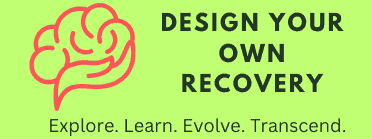The Greater Definition of Responsibility
Taking responsibility is not simply holding ourselves accountable for our actions, choices, and behaviors. Responsibility represents sovereignty over our decisions and the duty to act independently. It includes an obligation to our agency: The recognition that not only do we have the power and obligation to make decisions that impact our lives and the lives of others, but that we must attempt to understand the limits of our authority in any given situation.
“Freedom makes a huge requirement of every human being. With freedom comes responsibility. For the person who is unwilling to grow up, the person who does not want to carry his own weight, this is a frightening prospect.”
–Eleanor Roosevelt
For the alcoholic/addict taught to embrace powerlessness, this larger perspective may be received with some measure of resistance. The belief that our decision-making capabilities are curtailed and our powers limited due to the manifestation of a disease is widespread in the recovery community. The purpose of this post is to explore the relationship between responsibility, blame, victimhood, and personal empowerment.
While welcoming the 12-step viewpoint that responsibility includes taking ownership of our part in situations, we must also acknowledge that external factors matter. In addition, taking responsibility involves making choices that align with our values and goals. It also means maintaining awareness of the consequences of our actions and not blaming others for our mistakes, but rather accepting our role in shaping circumstances and taking necessary steps to improve them. Therefore, implementing responsibility means that we take time to review situations we took part in and determine how we could have done things better — especially if mistakes were made. But also important is the ability to take credit for positive contributions.
Taking Responsibility Means Living Responsibly
In addition to being responsible for our actions, a greater philosophical interpretation of responsibility encompasses our responsibility for our own existence and for our own experience. The vital concept of living responsibly is often referred to as living “at-cause” and touches many life-areas, including decision-making, self-esteem, confidence, and self-efficacy. However, for the purposes of SDR, we define living responsibly to encompass both responsibility in the classic sense and living at-cause.
The idea behind living at-cause is deceptively simple. It means taking an active orientation toward life as opposed to a passive one. Living at-cause is you happening to your life instead of life happening to you. It is the attitude that you are the primary architect of your life and that it is shaped primarily by your decisions and actions and not by some external force or outside influence.
“It is in responsibility that most people find the meaning that sustains them through life. It’s not in happiness. It’s not in impulsive pleasure.”
–Jordan Peterson
In opposition to focusing our power to proactively create the life we desire is the reality that many things in life are out of our control. Clearly, we are not omnipotent; there are things we control and others we do not. If we hold ourselves responsible for matters beyond our control, we put our wellness in jeopardy since we are guaranteed to fail. If we deny responsibility for things that are within our control, again we will ultimately suffer. We need to possess a clear understanding of what is, and what is not, our responsibility. We also need to accept, for those things that we do not control, that we are responsible for our attitude and reactions.

A hero is someone who understands the responsibility that comes with his freedom. – Bob Dylan
Victimhood
For many alcoholics and addicts, this situation creates a catch-22. Victimhood is feeling or believing that one has been wronged, oppressed, or harmed, resulting in a sense of powerlessness, helplessness, and suffering. The unfortunate truth is that many of us are, in fact, victims. Many (if not most) of us come from broken homes, had parents with mental health issues who were irresponsible and abusive, had mental health issues ourselves, were bullied at school, or any number of other critical, life-changing circumstances and issues.
In fact, there are many things out of our control that contribute to our upbringing. Our genes and environment, in addition to possibly predisposing us to addiction, shape our personality and experience. Our families and role models impart to us:
- Their beliefs and ideas
- Their hopes and dreams for us
- Fears
- Their unresolved issues and hang-ups
- There may be abuse and trauma
- Most of us raised in a confusing environment
Life is Difficult and Unfair
Life is inherently unfair and it can be challenging to not to take it personally. Especially when it is personal: Nowhere is life’s unfairness more apparent than inheriting our parents’ unresolved issues. Perhaps this is an understatement. Most of us have a thing or two we dislike intensely about our parents. Little did we suspect they would become our problem to solve later in life. Our parents’ unfinished business became our unfinished business and, in a term coined by an unknown psychologist, what we leave incomplete we are doomed to repeat. Trauma begets drama. You can read more about the unfairness of life as characterized in mythology here (from where, you ask? The Old Testament, of course! Coming soon.)
It’s readily apparent that beliefs, ideas, and hang-ups from our parents have shaped our subjective experience. If our experience is painful enough, if our issues are big enough, and if our genes predispose us to it, we turn to alcohol & drugs. As we all know, alcohol and drugs temporarily remove the uncomfortable subjective experience and replace it with a positive one, and this happens instantly.
Everything that has happened in our lives, whether we chose it or not, led to where we are today. So the question becomes, “How can I take responsibility for my life when so many bad things happened?” And some (but not all) might ask, “How can I be responsible for my life if I have a genetic disposition towards the disease of alcoholism and am ‘powerless’ over taking a drink?” and “I know I need to take responsibility for my life, but how can I fully do that when, darn it, I’m not in fact totally responsible!” This is a central dilemma.
Victimhood is Repulsive and Contrary to Our Humanity
Alongside those thoughts is the visceral repulsion, the instinctive revulsion against the idea that we are not responsible for ourselves. We have a bone-deep knowledge that it’s childish and is contrary to our humanity. It impacts our sense of self, our ego, and our self-esteem to entertain the idea that we are not responsible because it implies that we are nothing but driftwood tossed around by the currents and tides of life.
The short answer to why we must embrace responsibility for the entirety of our lives is because it’s better than the alternative. We may be victims, but dwelling on that fact is simply not helpful because embracing victimhood keeps us trapped in the past and prevents us from moving forward. Avoiding self-responsibility is us victimizing ourselves with regard to our own lives – it leaves us helpless. We give power to everyone except ourselves. Victimhood is a trap because:
- Victimhood is a waste of time. It can only move us away from the solutions to our problems, not toward them.
- It leads to more negative emotions (anger, resentment, loneliness) and suffering.
- Victimhood can become a self-fulfilling prophecy – it breeds poor performance and more failures which reinforce the sense of victimhood.
- Victimhood prevents us from dealing with negative emotions (grief, sadness, anger) because it keeps the focus on the past:
- It keeps us fixated on how and why things should be different rather than acceptance.
- Acceptance allows space for grieving what has happened, what has been lost, and what can not be changed.
- Instead of dwelling on the injustices of the past, we must grieve and let go.
It’s What We Do With Our Scars That Counts
No one emerges unscathed into adulthood. Some have it easier than others, but our success in life is in no small part determined by our capability to overcome and integrate the negative experiences of childhood. Some people may appear to live charmed lives but we only see what they choose to show us; we cannot know the internal struggles others have fought to get to where they are.
I am not what happened to me, I am what I choose to become. – Carl Jung
Taking Responsibility: Seizing Our Personal Power from the Jaws of Victimhood
Victimhood thus represents a type of negative psychological trap. The obvious counterintuitive is that taking responsibility leads not to burden but instead to freedom.
Reframe the Blame Game: Living responsibly is not just a commitment to shape our decision-making and actions; it also involves a change in mindset. “Feelings” such as betrayal, rejection, humiliation, and abandonment are in fact not feelings at all but beliefs. These beliefs are associated with judgments that trap us in our own narrative. Each is a form of blame and is an obstacle to experiencing the underlying feeling of loss. The beliefs only serve to justify and indulge our narcissistic (or childlike) ego at the expense of our mature masculine or feminine ego.
Let’s examine the textbook example of the victim mindset, the rhetorical question, “Why do people take advantage of me?” or alternatively, “Why do I let people take advantage of me?” In both cases blame is implied; in the first case the individual is blaming others and in the second themselves. Notice how blame is not part of a solution — it keeps us stuck in the problem.
A person with a mindset grounded in responsibility would instead ask, “How do I encourage other people to take advantage of me?” and “What feelings am I trying to avoid when I allow others to take advantage of me?”
Ask “How Do I” and “For What Purpose”
A good rule-of-thumb is to replace the “why” of a self-victimizing question into “how do I contribute to” and “for what purpose”, for example “Why doesn’t anyone listen to me?” and “Why do I always fail?” becomes: “What do I do that causes people to not listen to me?” “What payoff do I get when people don’t listen to me?” “Why and how do I cause myself to fail?” “What does not succeeding do for me?”
The question “for what purpose” usually has emotional components such as anger and fear. In the above examples, when no one listens you, the payoff might be to feel angry instead of having to back up, defend, and elaborate on the ideas you just expressed. The payoff for not succeeding might be a dark satisfaction in affirming your core beliefs about yourself and avoiding the spotlight success might bring.
Therefore, responsibility is not blame – we are not accepting blame for ourselves or placing blame on others.
Taking Responsibility Fully

Taking full responsibility is choosing to accept ownership of the circumstances of our lives and taking actions to make our lives better. We own the fact that not only have we had a hand in creating where we are in life, but we choose our response to life in every moment. As a consequence, we also own our own subjective experience – our feelings and interpretation of the meaning of our experience. Owning these things does not mean we accept blame for everything that has happened, but it also abandons the idea that we should have had perfect parents that gifted us a perfect life – we recognize this thinking as entitled, unrealistic, and childish.
“The key to success is to play the hand you’re dealt as if it’s the hand you wanted.”
–Tyrion Lannister
Where we are and where we are going in life is, then, our responsibility alone – but neither us or our families are to blame for it. The situation is similar to taking ownership of a car with no maintenance history:
- The car has problems
- The car’s problems are now your problems
- Problems may or may not be the previous owners’ fault and perhaps they should have fixed them but it’s too late now – the car was given as-is
- You’re responsible for the car whether you sit around pouting about what’s wrong with it or get on with fixing it and driving somewhere amazing.
Seize Your Power by Taking Responsibility
Taking responsibility is about seizing the personal power that is the God-given birthright of every individual. By taking responsibility, we commit to living in a way that welcomes adversity as an opportunity for growth. We recognize that we are not “a sucker” when we own a hand in the creation of the world around us nor are we to blame for everything. We recognize that dealing with challenging situations and overcoming adversity leads to higher-quality challenges and deeper and more meaningful relationships. With regard to others:
- We accept others’ right to make assertions about us
- We inquire about their feelings towards us
- Acknowledge and are accountable for our feelings.
- We finish our emotional unfinished business directly with the people involved.
In contrast, distancing ourselves from our role disallows our participation in solutions and prevents the joy and satisfaction of solving problems and overcoming adversity with others. Responsibility is at its core about empowerment: Claiming our personal power and taking the reins of our lives into our own hands.
Questions To Start Opening the Door To Living Responsibly
- Where am I not being responsible for my decisions and actions?
- Where am I not being responsible for prioritizing my time?
- Am I treating my body responsibly?
- How much awareness and consciousness do I bring to my personal relationships? My professional relationships?
- Do I take responsibility for the quality of the relationships I choose to engage in?
- Where am I not being responsible in my treatment of other people?
- Do I take responsibility for giving my life meaning?
- Do I take responsibility for giving myself happiness?
- Am I responsible to myself in all areas – materially, emotionally, intellectually, spiritually?
- Do I take full responsibility for my life experience?
The following are some tips to start taking responsibility with others:
- Be organized- Adopt or create a system that organizes your activities and commitments. Use planners, apps, notes or whatever you find works for you to keep track of where your sphere of responsibility begins and ends. Be a note-taker at work, especially when given a verbal list of tasks.
- Know your limits- Develop an awareness of what you are capable of and what is too much. Learn to say ‘no’ when you’re asked to overextend or overcommit.
- Communicate- Seek clarity and clearly communicate your needs both at work and in your personal relations. The better you understand your responsibilities and communicate what you want within a team or social circle, the more mutual understanding of the expectations and roles there will be.
